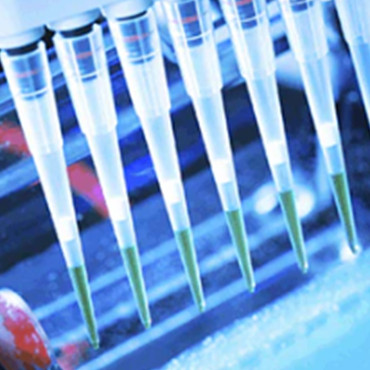Introduction to the principle and procedure of PCR technology
What is PCR technology?Polymerase Chain Reaction, or PCR, is a molecular biology technique used to amplify specific DNA fragments. It can be thought of as special DNA replication outside the organism.
Semi-retention replication of DNA is an important pathway for biological evolution and passage. Double-stranded DNA can be denatured and unchained into a single strand under the action of a variety of enzymes, and with the participation of DNA polymerase, it can be replicated into the same two molecules according to the principle of complementary base pairing. In the experiment, it is found that DNA can be denatured and unchained at high temperatures, and can be doubled when the temperature is reduced. Therefore, the denaturation and renaturation of DNA are controlled by temperature changes. By adding designed primers, DNA polymerase and dNTP can complete the replication of specific genes in vitro.
Importance of Taq Enzyme
However, DNA enzyme will be inactivated at high temperatures, so new DNA polymerase has to be added to each cycle, which is not only complicated to operate but also expensive, which restricts the application and development of PCR technology.
It was found that pcr Taq enzyme, a heat-resistant DNA polymerase, was a milestone in the application of PCR. Taq enzyme could withstand high temperatures above 90℃ without loss of activity and did not need to be added to each cycle, which made PCR technology very simple and reduced the cost greatly. PCR technology was widely used and gradually applied to clinical practice.

The principle and steps of PCR technology
The basic principle of PCR technology is similar to the natural replication process of DNA, and its specificity depends on oligonucleotide primers complementary to both ends of the target sequence.
PCR consists of three basic reaction steps: denaturation, annealing and extension.
① Denaturation of template DNA:
After the template DNA is heated to about 93℃ for a certain time, the double-stranded template DNA or the double-stranded DNA formed by PCR amplification is dissociated to make it a single strand, so that it can combine with the primer and prepare for the next round of reaction.
② Annealing (renaturation) of template DNA and primers:
After the template DNA was denatured into a single strand by heating, the temperature dropped to about 55℃, and the primer was paired with the complementary sequence of the template DNA single strand.
③ Primer extension:
DNA templates, primers, under the action of binders in Taq DNA polymerase reaction with dNTP as raw materials, target sequence as a template, according to the complementary base pairing and half reserved copy principle of the synthesis of a new and complementary to the template DNA half reserved copy chain, repeat cycle degeneration, annealing, stretches across three processes can get more "half reserved copy chain", And this new chain can become the template for the next cycle. Each cycle takes two to four minutes to complete, and two to three hours can amplify the target gene several million times.
Professional manufacturer of Nucleic Acid (DNA & RNA) Extraction and Analysis products supplier
GENETURE is a group company,we own two factories: Ascend and Dianrun,to provide one stop solution of Nucleic Acid Extraction and Analysis,including solution for COVID-19. Geneture provides high quality and professional Nucleic Acid Extraction Reagents, Lab consumables, Real-time PCR consumables and test machines.
GENETURE main products including: Nucleic acid extraction or purification kit,Automatic nucleic acid extractor, PCR system, PCR kit, Magnetic beads, and lab consumables of 96 well deep plate,Magnetic rod comb,PCR tube,PCR plate,Pipette tips,centrifuge tubes.
Geneture's PCR amplification systems feature the latest technological advances, providing greater accuracy and reproducibility in nucleic acid amplification for genomic experiments. Product lines include real-time PCR systems, PCR reagents, and plastic products (PCR plates and PCR tubes). If you have any questions about PCR, feel free to contact us.
Email: info@geneture.com
Mobile: +86 150 1002 8687
